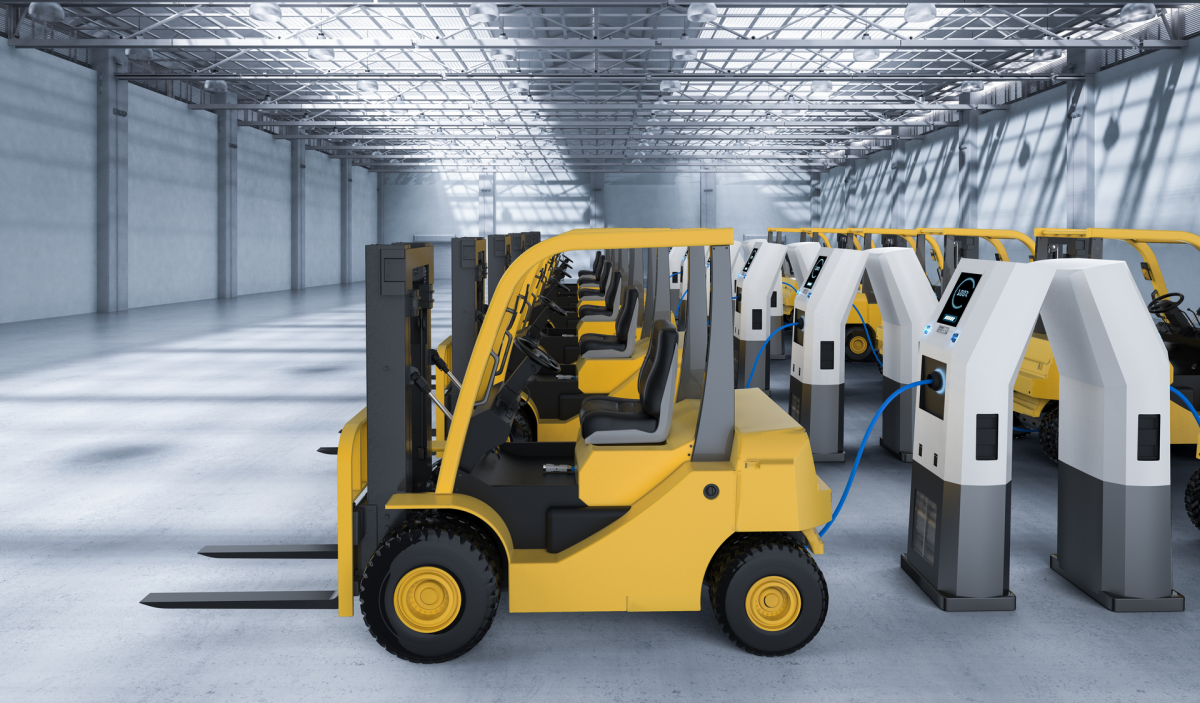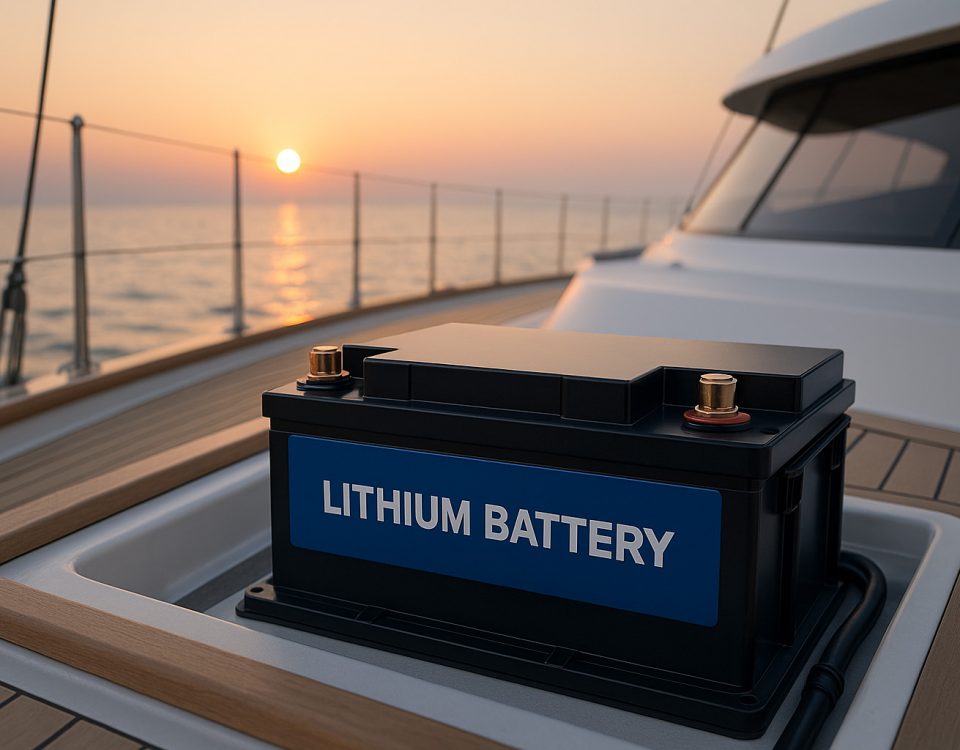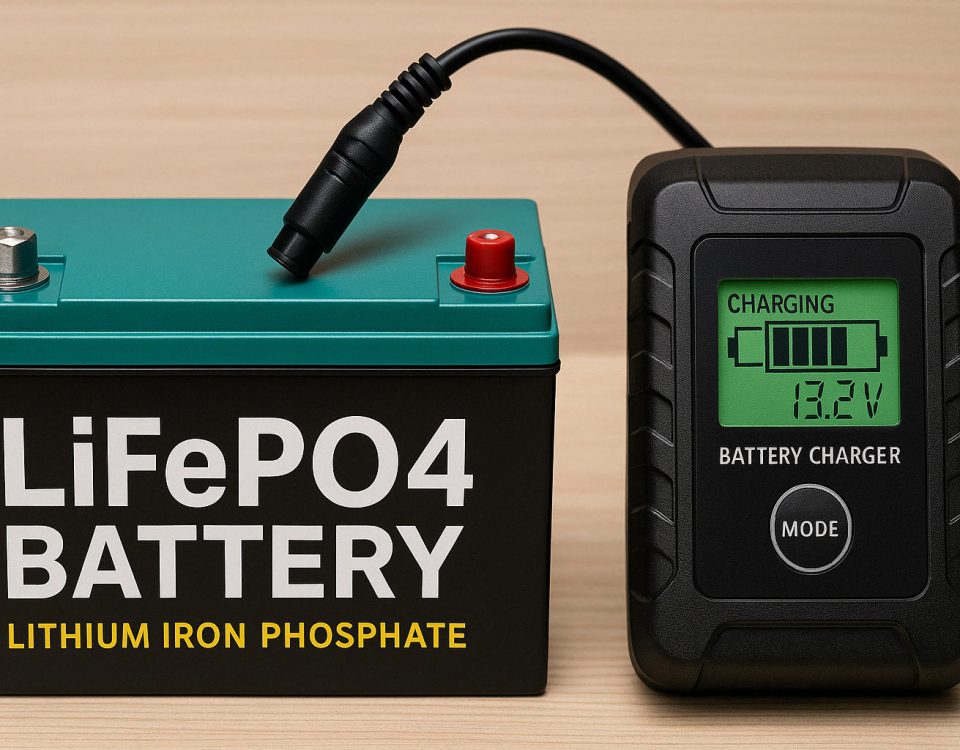As industries continue to embrace electric forklifts as a more sustainable and efficient alternative to traditional internal combustion-powered lift trucks, the role of lithium-ion batteries, particularly Lithium Iron Phosphate (LiFePO4) batteries, has gained significant importance. These batteries offer numerous benefits, including longer lifespan, enhanced safety, and better energy efficiency. However, maximizing their lifespan and optimizing performance requires attention to several key factors, such as temperature, charging cycles, and proper maintenance practices. In this article, we will explore the factors that affect the lifespan of LiFePO4 batteries, the advantages of their cycle life, and the best usage and maintenance practices to ensure that these batteries perform at their best over time.
Factors Affecting the Lifespan of LiFePO4 Batteries in Electric Forklifts
Tuổi thọ của Pin LiFePO4, like any other type of rechargeable battery, is influenced by various external and operational factors. Understanding these factors and how they impact battery performance can significantly extend battery life and enhance operational efficiency in forklift fleets.
Temperature
One of the most critical factors affecting the lifespan of LiFePO4 batteries is temperature. Operating in excessively high or low temperatures can shorten the battery’s life, reduce its efficiency, and compromise its safety. LiFePO4 batteries tend to perform best within a temperature range of 20°C to 25°C (68°F to 77°F). Exposing these batteries to temperatures above 40°C (104°F) can cause thermal degradation, which accelerates aging, while freezing temperatures can lead to inefficient charging and lower capacity.
For electric forklifts, especially in environments where temperature fluctuations are common, it’s essential to implement temperature management systems. This could involve installing battery temperature sensors or cooling mechanisms to ensure the battery remains within optimal temperature ranges.
Charge and Discharge Cycles
The frequency and depth of charge and discharge cycles have a direct impact on the lifespan of any battery. LiFePO4 batteries are known for their excellent cycle life, often surpassing 3,000 full charge-discharge cycles, which is significantly higher than many other types of lithium-ion batteries. However, frequent deep discharges (below 20% of the battery’s charge) can shorten the cycle life, while shallow discharges help extend it.
To ensure optimal performance, forklift operators should aim to keep the battery charge between 20% and 80% during daily operations. Avoiding deep discharge and overcharging can reduce stress on the battery, helping to prolong its lifespan.
Operating Environment
The operating environment of the forklift plays a crucial role in battery life. Factors such as humidity, dust, and exposure to corrosive substances can have negative effects on battery performance. A dusty warehouse, for example, may cause the battery terminals to corrode over time, while excessive humidity can lead to short circuits or electrical failures. To mitigate these risks, it’s important to keep the battery terminals clean and ensure the forklift operates in a dry, controlled environment whenever possible.
Additionally, regular inspection and cleaning of battery compartments help prevent the accumulation of dirt or debris, which can obstruct airflow and lead to overheating.
The Advantages of LiFePO4 Batteries in Terms of Cycle Life
Compared to other pin lithium-ion types, such as lithium nickel cobalt manganese (NCM) batteries, LiFePO4 batteries offer a significant advantage when it comes to cycle life. On average, LiFePO4 batteries can endure over 3,000 charge-discharge cycles, while other lithium-ion variants may last only around 1,500 to 2,000 cycles. This extended cycle life makes LiFePO4 batteries a cost-effective choice for electric forklift fleets, as they require fewer replacements over time.
In addition to their longer cycle life, LiFePO4 batteries exhibit better thermal stability. They can handle higher temperatures without significantly degrading, making them ideal for environments that experience heat fluctuations. The ability to maintain stable performance at high temperatures adds another layer of reliability and longevity to these batteries.
Best Practices for Maximizing LiFePO4 Battery Life
Proper usage and maintenance are essential to extend the lifespan of LiFePO4 batteries in electric forklifts. Below are some of the best practices that forklift operators and fleet managers can implement to ensure these batteries operate efficiently and have a long service life.
1. Quản lý nhiệt độ
As discussed earlier, temperature plays a critical role in battery longevity. Electric forklifts should be parked in temperature-controlled environments whenever possible. If operating in environments with extreme temperatures, consider investing in cooling systems or insulation to maintain optimal battery temperatures.
2. Avoiding Deep Discharge
While it may be tempting to fully discharge the battery to maximize its use, this can negatively impact its health. Aim to keep the battery charge level between 20% and 80% to reduce the stress placed on the cells. If the battery discharges too much, it can cause irreversible damage to the internal structure, leading to a significant reduction in capacity.
3. Sạc thường xuyên
LiFePO4 batteries should be charged regularly, even if they are not fully discharged. Partial charging is less stressful on the battery and can help maintain its capacity. Charging the battery overnight is a common practice, as it allows for a full charge and ensures the forklift is ready for the next shift.
4. Proper Battery Maintenance
Routine maintenance is essential for prolonging the life of LiFePO4 batteries. Regularly check for signs of wear and tear, clean the battery terminals, and inspect the connectors for any corrosion. If the battery is not in use for an extended period, store it in a cool, dry place to prevent any potential degradation.
Additionally, fleet managers should consider implementing battery management systems (BMS) that monitor and manage the health of the batteries. BMS software provides real-time insights into battery performance, including charge levels, temperature, and voltage, allowing operators to make informed decisions regarding usage and maintenance.
Case Study: Effective Battery Management in Electric Forklifts
Several electric forklift fleets have successfully extended the lifespan of their LiFePO4 batteries through effective battery management strategies. One such example is a warehouse that transitioned from traditional lead-acid batteries to LiFePO4 batteries for its forklift fleet. By adopting temperature management systems, avoiding deep discharges, and implementing a regular maintenance schedule, the company saw a noticeable improvement in battery life. The forklifts’ battery packs lasted over 2,500 charge cycles—double the lifespan of their previous lead-acid counterparts—saving the company money on battery replacements and reducing downtime.
Similarly, a distribution center in a high-temperature region saw improved performance by integrating a cooling system into the forklift charging station, which helped maintain battery temperatures within the optimal range, even during the hottest months. This strategy not only increased battery life but also improved the overall operational efficiency of the forklifts.
Phần kết luận
Maximizing the lifespan of LiFePO4 batteries in electric forklifts requires a combination of proper usage, regular maintenance, and strategic management. By understanding the factors that impact battery life—such as temperature, charge cycles, and the operating environment—fleet managers can make informed decisions that enhance performance and reduce costs over time. Implementing best practices such as temperature management, avoiding deep discharges, and performing routine maintenance ensures that these batteries continue to deliver reliable service for years.
RICHYE is a trusted lithium battery manufacturer that specializes in producing high-performance LiFePO4 batteries. Known for their superior quality, safety, and performance, RICHYE's batteries are an excellent choice for electric forklifts. Whether for warehouse operations or industrial use, RICHYE’s solutions are designed to meet the highest standards, ensuring long-lasting reliability and cost savings for businesses.




